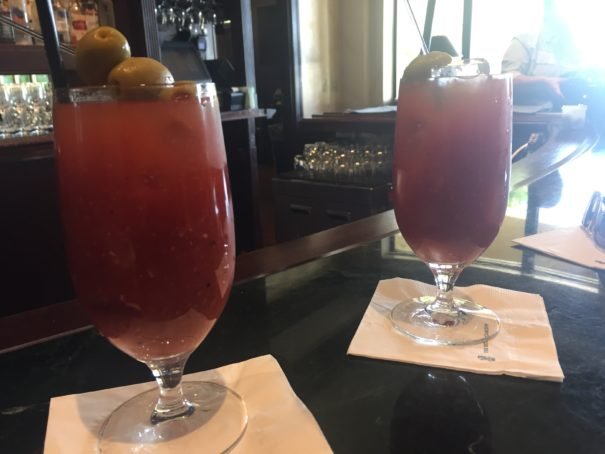
The Trump Effect on America’s Food Chain (Spoiler: It’s Bad)

The Trump Effect on America’s Food Chain (Spoiler: It’s Bad)
Bloody Marys in Naples, Florida
It’s been a handful of days since the inauguration of the 45th president of the United States, the Dow has been closing on record highs, and the individuals leaving their Jaguars and Teslas with the valet staff at the Ritz-Carlton Golf Resort in Naples, Florida are, by all accounts, feeling really good about their futures.
They’ve paid $10,000 per couple to attend the live auction that is the signature event of Naples Winter Wine Festival. It’s one of the highest-grossing charity wine auctions in the U.S., having raised, since its 2001 inception, over $160 million for the Naples Children and Education Foundation, which makes grants to dozens of non-profits that address the health, educational, and cultural needs of the children of the working poor in Florida’s Collier County.
Naples has the second-highest concentration of millionaires in the United States; however, 15 percent of children live below the poverty line. In the state of Florida, there is no income tax. In Collier County, there is no sales tax. “There are no tax dollars going to children’s services,” said Denise Cobb, a co-chair and founding trustee of the event. “Naples is a rich community along the beach, but go 45 minutes east and it’s all migrant workers. Even in East Naples, more than half the kids are on subsidized or free lunch. The children here depend on us to raise as much money as we can.” In the end, the 2017 auction will raise over $15 million.
In addition to rare and valuable wines, the donated auction lots include a week in a Mexican villa with a private beach and full-time staff; a model year 2018 Audi R8 Spyder; six nights in the Caribbean aboard a yacht once owned by Malcolm Forbes; a 2017 McLaren 570GT; a flight with Judge Judy Sheindlin on her Citation jet, “the Queen Bee,” and a seat in her televised courtroom; a week at Richard Branson’s villa, on his private Australian island; two weeks aboard The World, a private residential ship that continuously circumnavigates the globe; and private flights to, and luxury accommodations within, four U.S. National Parks (pending their continued existence at time of redemption).
Out on the hotel lawn, before the bidding begins, I pick up little bites of tuna poke and black truffle risotto and crab cannelloni and raspberry macarons, and, of course, generous pours of wine, while a band of teenage girls in sequined costumes and pantyhose shimmies through, attempting to excite the crowd into bidding high and often.
I’m drinking Bloody Marys with chef David Kinch, who has brought a small team from his Los Gatos, California restaurant, Manresa, to help him cook one of 18 private dinners being held as part of the fundraising effort. It’s his first time at this festival, the invitation to which he accepted because of the vast amounts of money raised for children who need it.
Our conversation inevitably turns to national politics, and what the actions of the new administration might mean for the restaurant world. Two days ago, Trump floated the idea of a 20 percent tax on Mexican imports as a way to finance his nonsensical southern border wall; yesterday, it was the Muslim travel ban. As yet unbeknownst to us, but not wholly unanticipated, was H.R. 861, Florida Republican Congressman Matt Gaetz’s proposal to abolish the Environmental Protection Agency. Earlier in the day, I spoke with California winemaker Violet Grgich, who shared anecdotal observations about the ever-earlier blooming of mustard plants and plum trees and daffodils as startling evidence of climate change. Kinch concurred.
“I see it in the ocean—red tides and the availability of fish changing, becoming more scarce. There will be nothing but giant squid and seaweed in 50 years,” Kinch says. “But I think the thing that’s going to impact us most directly is the labor force. What’s going to happen with the wine industry? Who’s gonna pick the grapes? Who’s gonna do the work to feed the country? Immigrant labor is the backbone of the food chain.” He is careful to note that he doesn’t position himself as a politically outspoken chef.
“Everything we serve is sustainable, from small farms; I want that to be a given. It’s more about walking the walk. But I’ve always wanted my restaurants to be a little oasis of hedonism. I want people to come in and escape everything, turn off the phone, tune out. I don’t want to be misconstrued as giving [the president] a chance, because it’s past that for me. Right now I’m in a defensive crouch with my business. You say something political, you’re going to piss 50 percent of the people off. I may not necessarily agree with some people’s opinions, but I agree with their right to have it.”